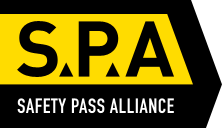High risk sectors where workers are exposed to a range of different dusts that are linked to respiratory diseases are being targeted in a new inspection crackdown.

The Health and Safety Executive (HSE) announced the new round of dust control inspections on 11 June, which will take place over the next few weeks. HSE inspectors will concentrate on industries such as construction, woodworking and food manufacturing where occupational lung diseases, including in some cases occupational cancers, are more common.
Inspectors will look to see what measures employers have been put in place to protect workers’ lungs from the likes of asbestos, silica, wood and flour dust. Businesses will need to show that they have worked with employees to highlight the risks, plan work properly and put in place the right controls. Where necessary, the HSE says it will use enforcement to make sure employees are protected.
“Exposure to asbestos, silica, wood, flour and other dust can have life-changing consequences,” said Professor David Fishwick, HSE’s chief medical officer.
“Each year work-related lung diseases linked to past exposures are estimated to kill 12,000 workers across Great Britain. In many cases these diseases take a long time to develop after exposure, so the damage done may not be immediately obvious. Others, such as occupational asthma and acute silicosis, can occur more quickly.”
Fishwick added: “These conditions can and do have a significant impact on both the individuals affected and those closest to them, so it is imperative that workers take the necessary precautions to protect their lungs.”
Sarah Jardine, HSE’s chief inspector of construction, said: “We are carrying out this series of inspections to ensure businesses are fulfilling their legal duties to protect workers from harm. This includes controlling the levels of dust in workplaces.
“We want to ensure employers and their workers are aware of the risks associated with any task that produces dust. Such work needs to be properly planned and use the right controls, such as water suppression, extraction and masks.”
IOSH Magazine



















